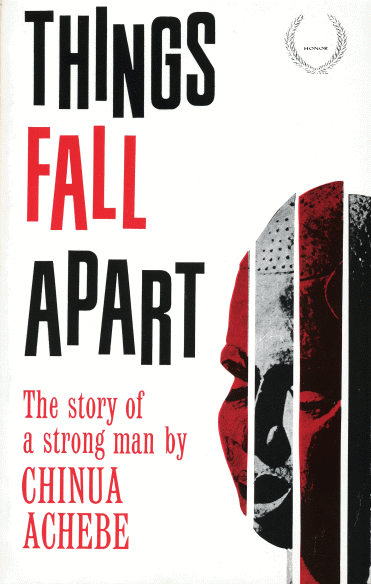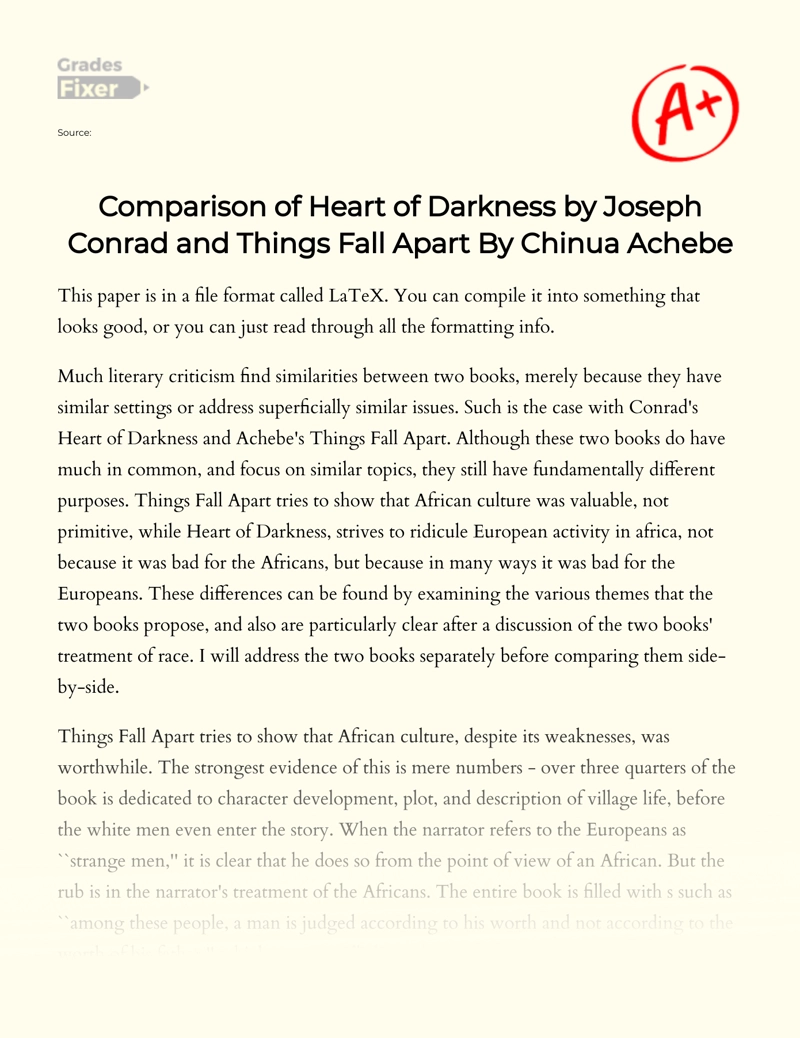The theme of Chinua Achebe's novel "Things Fall Apart" is the clash between traditional Igbo society and the culture and religion of the colonizing British. The story follows the life of Okonkwo, a respected member of the Igbo community, as he struggles to adapt to the changes brought about by the arrival of the British and the spread of Christianity.
One of the central themes of the novel is the loss of cultural identity and tradition. Okonkwo and the other characters in the novel are deeply connected to their cultural traditions, which include a complex system of social hierarchy, religious beliefs, and customs. However, the arrival of the British and their efforts to convert the Igbo to Christianity threatens to erase these traditions and replace them with a foreign culture. This leads to a great deal of conflict and tension within the Igbo community, as some characters embrace the new ways while others resist and cling to their traditional ways.
Another theme of the novel is the power dynamics between the colonizers and the colonized. The British are portrayed as ruthless and self-serving, using their superior technology and military might to exert control over the Igbo. They impose their laws and values on the Igbo, often without regard for the impact it has on their way of life. This is exemplified in the way they treat Okonkwo and other members of the Igbo community, who are punished and humiliated for actions that are deemed unacceptable by the colonizers but are perfectly acceptable within their own cultural norms.
A third theme of the novel is the impact of change on individuals and communities. Okonkwo, in particular, struggles to adapt to the changes brought about by the colonizers and the spread of Christianity. He is a proud and fiercely independent man, and the loss of his cultural traditions and the arrival of the British challenge his sense of self and place in the world. As a result, he becomes increasingly angry and bitter, lashing out at those who he perceives as a threat to his way of life. This ultimately leads to his downfall and tragic end.
In conclusion, the theme of "Things Fall Apart" is the clash between traditional culture and the forces of change, particularly in the form of colonialism and the spread of Christianity. The novel explores the ways in which this conflict affects individuals and communities, and the consequences of trying to resist or adapt to these changes. It is a powerful and thought-provoking work that speaks to the universal human experience of grappling with change and the loss of tradition.
Themes of Social Rituals, Marriage Customs in "Things Fall Apart" written by Chinua Achebe

The main theme of the novel, in terms of cultural subjugation and introduction of western traditional values to replace contemporary African cultures are discussed during the course of this novel. We are told that he does not think about things, and we see him act rashly and impetuously. This modernity is a threat to Igbo tradition, and erasing Igbo tradition is a vital part of the colonization process. Colonization is the act of settling in an area and taking control of the indigenous people there. On a macroscopic level, it is extremely significant that Achebe chose to write Things Fall Apart in English—he clearly intended it to be read by the West at least as much, if not more, than by his fellow Nigerians. At some point in the journey, as signal is given and a man cuts Ikemefuna down with his machete, but he does not kill him.
The Theme Of Tradition In Things Fall Apart By Chinua Achebe

The fortune appeared to be built upon the hidden downfall making the novel to be a tragedy of epoch transferring modern readers to the period of ancient tribes, their culture, and values. Okonkwo often went hungry, which led to his own desire to be a better father to his children than his father was to him. Okonkwo kills Ikemefuna because he does not want to be thought as weak by the other men who are with him. Many of the villagers are excited about the new opportunities and techniques that the missionaries bring. Though initially hesitant to take the missionaries seriously, the missionaries and Christianity became the main reason why so many Igbo people started following the ways of the outsiders. The sentences are simple enough, and the words are uncomplicated, save for a couple of Igbo words that warrant translations.
Themes in Things Fall Apart by Chinua Achebe

This novel is set in Africa and follows Okonkwo, the novel's protagonist, as he watches both his home being colonized by the British and his life and culture fall apart as a result. The author managed to disclose several important themes such as social rituals, marriage customs, honor symbols, and human values. In order to sculpt a literary monument to the human condition and these universal themes, the author, Achebe, employs a broad variety of literary tools. They never answered yes for fear it might be an evil spirit calling. Ikemefuna is the young man, and it is decided that he will live with Okonkwo. The idea of pride is constantly developed throughout the thoughts and actions of the novels protagonist Okonkwo.
Things Fall Apart by Chinua Achebe: Ch. 7

They start to realize that they must be more accepting towards change and new ideas because it will make their life more tribe more successful. Okonkwo believes masculinity to be hard, insensitive, and controlling. This pride is justifiable, since he has accomplished a lot. He wrote the book to correct the negative and uncomplimentary impression about pre-colonial Africa arising out of these accounts. This impact is outlined in a very simple manner, but within this simplicity, there is a rich and inventive use of language.
"Things Fall Apart" by Chinua Achebe: Theme Study

Rather, by peppering the novel with Igbo words, Achebe shows that the Igbo language is too complex for direct translation into English. Fate and Free Will Chinua Achebe places a large question of fate and free will upon his characters in Things Fall Apart. Justice always needs to be seen through the lens of culture, and no system is perfect. Achebe was one of the first to write about African culture for westerners to read about, making Things Fall Apart a true innovation in writing. The patriarchal ordering and gender expectations in the community extend into farming, with Okonkwo focusing on cultivating the supposedly manly yam while leaving other less important crops like cocoyam to his wives to cultivate. The structure helps in portraying African culture as comparatively developed, sophisticated, and self-sufficient.
Things Fall Apart Themes and Analysis

Under African customs, Okonkwo himself was not empowered to kill a person who was needed to be sacrificed. Perhaps, an issue of slight controversy would be the heartlessness with which the Christian missionaries are depicted in this novel. In summary, Achebe uses several literary devices and techniques to express many views on the abstract, subjective, concepts of masculinity and femininity. Okonkwo views being manly as being very strict and dominating. Okonkwo kills Ikemefuna out of fear of being thought of as weak. .







